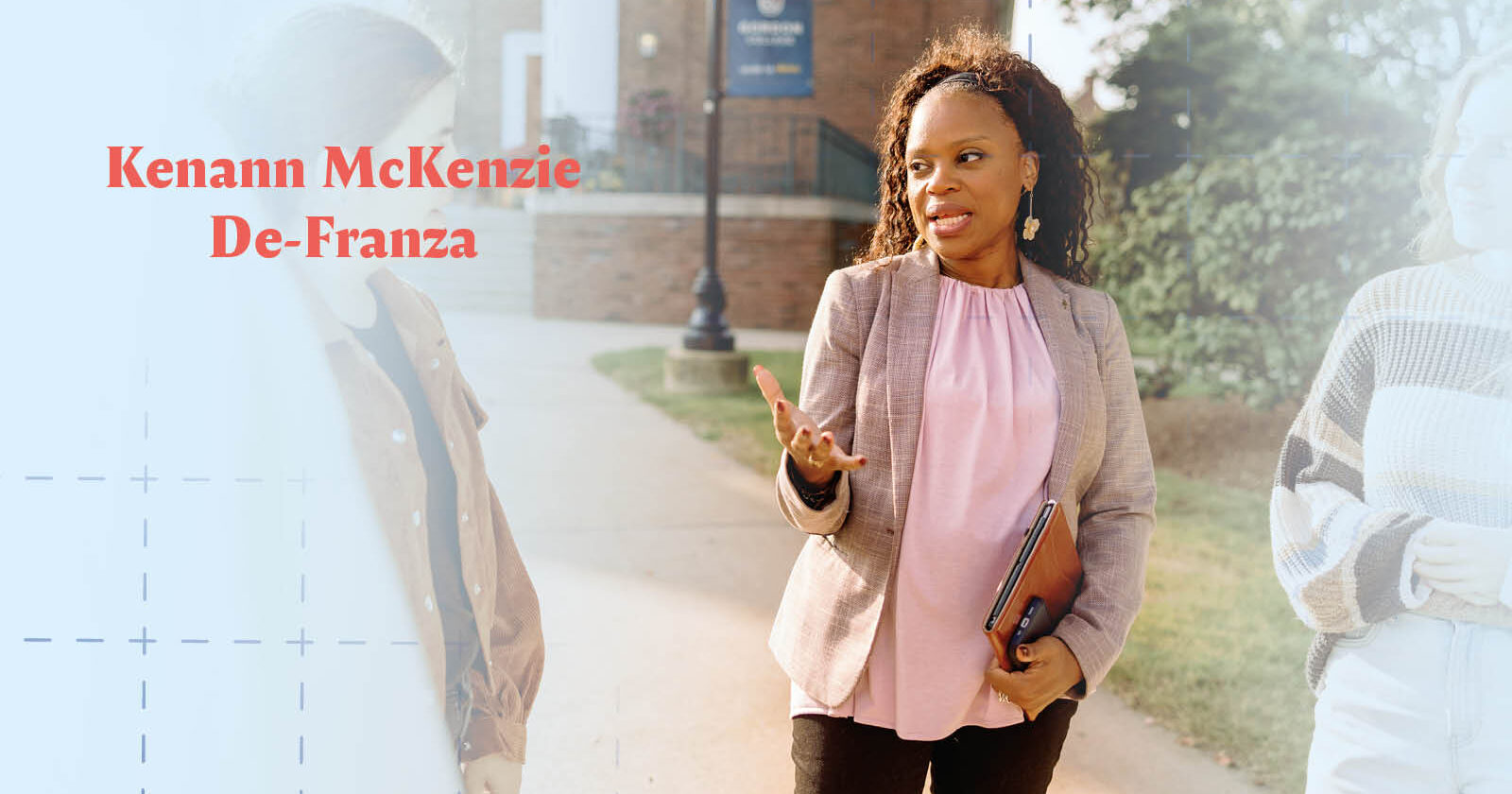Q&A with New Faculty: Kenann McKenzie-DeFranza
A version of this article originally appeared in the spring 2024 issue of STILLPOINT magazine.
Kenann McKenzie-DeFranza joins Gordon as the director of academic innovation and strategic partnerships and associate professor in the practice of education. She earned her Ph.D. from Teachers College at Columbia University. Most recently she served as the inaugural director of the Generous Listening and Dialogue Center at Tufts University.
STILLPOINT: You’ve touched on so many aspects of education over course of your career. At this moment, which education policy issues are you most passionate about?
Kenann McKenzie-DeFranza: I am most passionate about centering children’s needs. I’m really concerned that our children have a sense of childhood being important and not be in a race to grow up. Adults need to appreciate that we can engage children with information in timely ways that are appropriate and that are not overwhelming or unnecessary. Finding that balance as we’re trying to teach children about the world and make sure they have accurate information is important. I think we can overcorrect by assuming that as soon as a child can hear and comprehend information, their spirit can handle the information. We know that in our spiritual journeys, we have degrees of information we can process, understand and cultivate. I don’t think that’s any different with children.
SP: Tell us about your time leading the Generous Listening and Dialogue Center at Tufts University. What was the goal of your work there?
KM: Generous listening implies more than active listening, which is about making sure you’re paying attention. Generous listening is the idea that you’re listening to think about how to bridge relationships and create connections. You’re not listening only to reply or to obtain something you need to know; you’re really thinking about the humanity behind what the person is saying. The idea is to create an environment where dialoguing is not just to get information or to win an argument. Humans are better able to live alongside one another if we have a better way of communicating and understanding, without always needing to change the person’s perspective.
SP: How does your faith influence your work on the practice of generous listening?
KM: This is one of the reasons I’m excited about being at Gordon, because I can integrate these concepts more clearly. I think generous listening is a wonderful framework because when Jesus went into the world and people approached him or chose to follow him, religious leaders who were just thinking about who was correct wanted to know why he was engaging with these people. There was so much judgment around where they came from and whether they washed this way or ate that way. And ultimately Jesus said the objective is they want to do the will of God and bring the kingdom forward. Jesus was a wonderful listener, and children were drawn to him. People came and shared their really hard stories or admitted to them. And that’s because they could sense his compassion and openness to hearing what they had to say. And for me, this is a reflection of trying to be that compassionate listener who doesn’t just race to the end to say, well, do you agree with me or not? And if not, we can’t be friends. Instead, I actually care about your story, and I care about the journey you’re on, and you sharing with me is a gift, and my listening is hopefully a gift to you.
 The Bell
The Bell